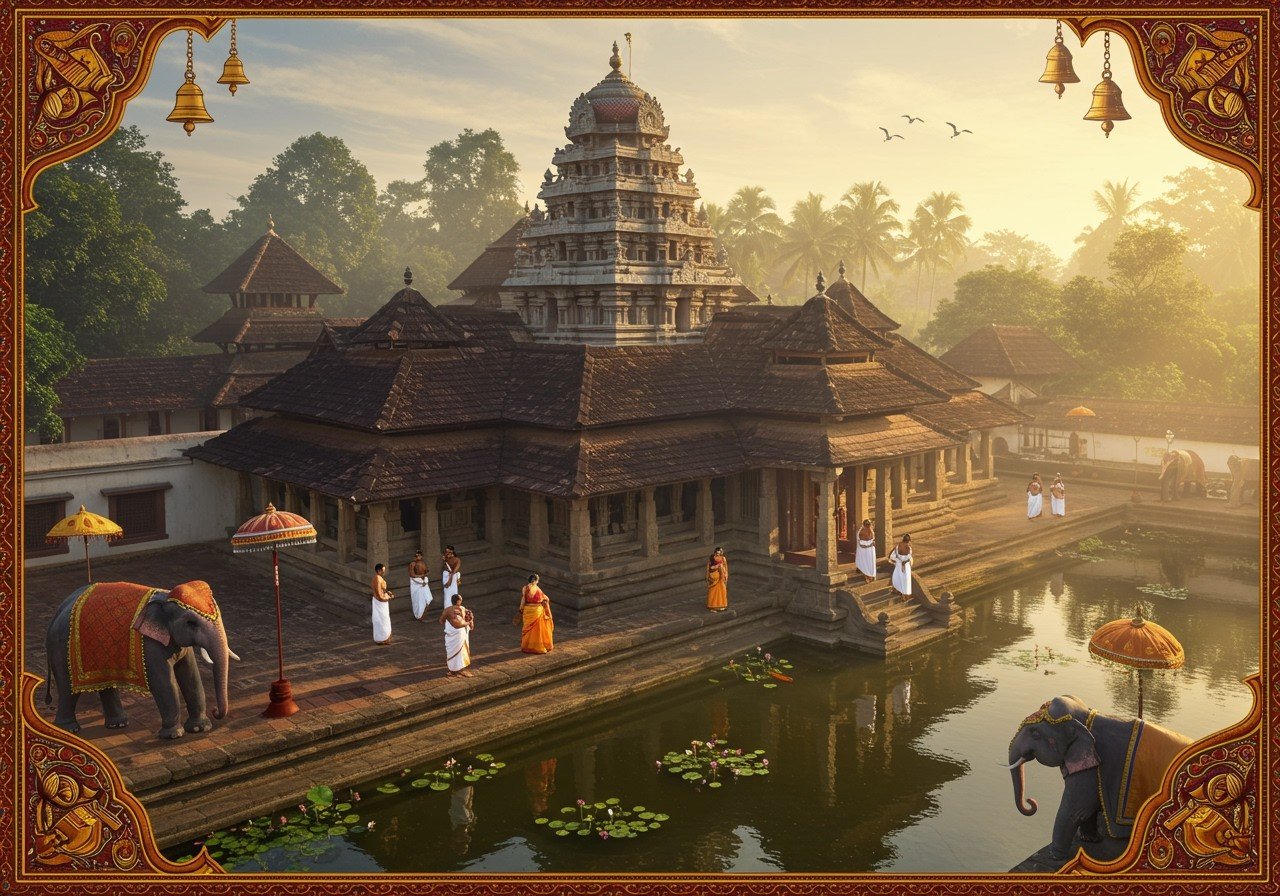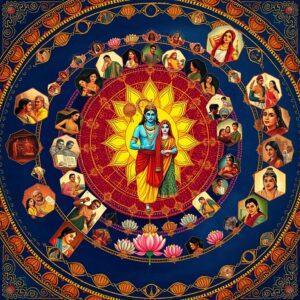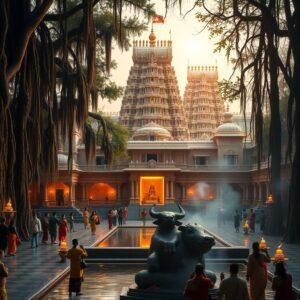
Thiruvanchikulam Temple, nestled in Kodungallur, Kerala, stands as a significant Hindu pilgrimage site dedicated to Lord Shiva. Known for its rich history, intricate architecture, and vibrant rituals, this ancient temple attracts devotees from all corners of India. This guide provides essential information about the temple’s timings, dress code, rituals, and nearby attractions to help you plan a seamless and enriching visit.
Historical Significance
Thiruvanchikulam Temple’s history is deeply intertwined with the Chola dynasty, dating back to the 8th century. The temple played a vital role in the Bhakti movement and finds mention in ancient Tamil literature. Legend has it that Lord Shiva himself consecrated this sacred ground. The temple’s architecture showcases the exquisite Dravidian style, contributing significantly to Kerala’s rich cultural heritage. You can explore more about the temple’s architecture through this resource.
Temple Timings and Daily Rituals
Knowing the temple’s schedule is crucial for a smooth visit. Thiruvanchikulam Temple generally opens early morning and closes late evening. The timings may vary slightly, so it’s always recommended to check the latest timings. The key daily rituals are:
- Usha Pooja: This ritual takes place early in the morning, marking the beginning of the day’s ceremonies. It is a serene and auspicious time to offer prayers.
- Uchikala Pooja: Held at midday, this pooja is another important part of the daily rituals. It is a time for devotees to connect with the divine.
- Athazha Pooja: This evening pooja concludes the day’s ceremonies and is a beautiful time to witness the temple’s spiritual atmosphere.
During significant festivals like Mahashivaratri and Pradosham, special timings are observed. Check for specific timings during these periods.
Dress Code and Respectful Attire
Maintaining a respectful dress code is essential when visiting Thiruvanchikulam Temple. Traditional attire is highly recommended.
- Men: A dhoti or mundu is the preferred attire. Shirts are generally not worn inside the sanctum. You can find appropriate dhotis at Poojn.in.
- Women: Sarees or salwar kameez are considered appropriate. Modest dressing is key, and revealing attire should be avoided.
Footwear is not permitted inside the temple premises. Adhering to the dress code demonstrates respect for the deity and the temple’s traditions. More information regarding the dress code can be found here.
Booking and Planning Your Visit
Booking in advance, especially for special poojas and during festivals, can simplify your visit. Both online and offline booking options are often available. Consider pre-booking guided tours for a more informative experience. Check the temple’s official website or other reliable platforms for booking procedures and payment methods. Always keep booking receipts for reference.
Rituals and Festivals
Thiruvanchikulam Temple is known for its vibrant rituals and festivals. Daily poojas hold deep significance. Major festivals celebrated include:
- Mahashivaratri: This major Hindu festival dedicated to Lord Shiva is celebrated with great fervor and devotion.
- Thiruvathira: This festival is particularly significant in Kerala and is celebrated with traditional dances and rituals.
- Navaratri: This nine-night festival celebrates the divine feminine and is marked by colorful celebrations and rituals.
Local Attractions
Enhance your visit by exploring nearby attractions:
- Kodungallur Bhagavathy Temple: A prominent temple dedicated to the goddess Bhagavathy.
- Cheraman Juma Masjid: Considered one of the oldest mosques in India, offering a glimpse into the region’s diverse history.
- Muziris Heritage Site: An area rich in historical significance, showcasing the remnants of an ancient port city.
- Backwaters of Kodungallur: Enjoy the serene beauty of Kerala’s backwaters.
You can find a map of the area here.
Poojn.in: Your Spiritual Companion
Poojn.in, India’s leading online store for spiritual and puja items, can assist you in preparing for your Thiruvanchikulam Temple visit. We offer a wide range of products, including dhotis, puja items, and traditional offerings. Visit www.poojn.in to explore our collection and enhance your spiritual journey.
Conclusion
A visit to Thiruvanchikulam Temple is a journey through Kerala’s rich cultural and spiritual tapestry. By understanding the temple timings, dress code, and booking procedures, you can ensure a smooth and meaningful experience. Immerse yourself in the temple’s rituals, explore the local attractions, and create lasting memories. Plan your visit today and embark on a spiritual adventure.


